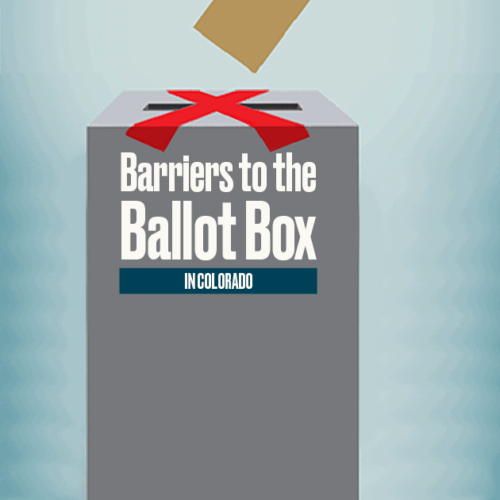Introduction
Reforms passed in Colorado in 2013 broadened access to the ballot box. They are now a model for other states looking to make it easier for residents to vote.
The Voter Access and Modernized Elections Act of 2013 requires ballots to be mailed to every registered voter for most elections, created voting centers where any registered resident could cast a ballot (instead of assigned polling places) and allowed residents to register the day of the election.
Sign up for The Moment newsletter
Our CEO Susan Smith Richardson guides you through conversations and context on race and inequality.
The law also shortened the length of time, from 30 days to 22 days, a voter has to live in Colorado before being eligible to register to vote.
Prior to 2020, Colorado was one of only five states that conducted their elections by mail. Other states have broadened vote-by-mail access this year as the country grapples with the COVID-19 pandemic.
Because Colorado’s reforms have expanded access to the polls, the state’s voting rights advocates have shifted their focus toward educating residents about how, where and when to vote, rather than pushing for legislative reforms and fighting court battles.
“What we’re really focusing on in terms of preserving the right to vote is being able to cut through the noise and provide clear and accurate information,” said Jen Samano, campaign coordinator for the American Civil Liberties Union of Colorado. “Average voters will consume national-level media and might not realize the ins and outs of local election administration.”
Here’s a look at the few remaining hurdles to voting in Colorado.
Felony disenfranchisement
Residents who have been convicted of felonies are not eligible to vote in Colorado while they are serving their sentences, but thanks to a law passed in 2019, their rights are restored the day they are released from prison — regardless of whether they still face parole or probation.
Colorado became one of the latest states in a national movement away from the disenfranchisement of people convicted of crimes, a system that disproportionately affects voters of color.
Still, Samano said the ACLU of Colorado is pushing to extend rights to people in prison with felony convictions.
“Restoring parolees’ voting rights” is an “important first step,” said Rep. Leslie Herod, who authored Colorado’s 2019 law. But “we need to consider restoring voting rights to those incarcerated” because “if anyone should be voting, it’s those who have been most affected by our laws.”
Rejected ballots
Colorado Public Radio found that a disproportionate number of the state’s rejected ballots were filled out by voters in communities of color and younger voters.
Residents are allowed to fix their ballots so that they’re counted, but most counties send instructions only in English, CPR found. Samano said Colorado is one of 18 states that notify residents when their ballots aren’t counted.
This year, Samano said, the Colorado secretary of state is rolling out a new method to allow voters to correct their ballot signatures or verify their identities by text message.
Read more in Money and Democracy
US Polling Places
Steady progress on voting rights in Illinois, but challenges remain
An array of steps have been taken to ensure voting rights in the state, but implementation issues and uneven execution have hampered the efforts.
US Polling Places
In North Carolina, court decisions favor voter enfranchisement
Still, voter-rights advocates fear counties may not follow decisions or state directives.


Join the conversation
Show Comments